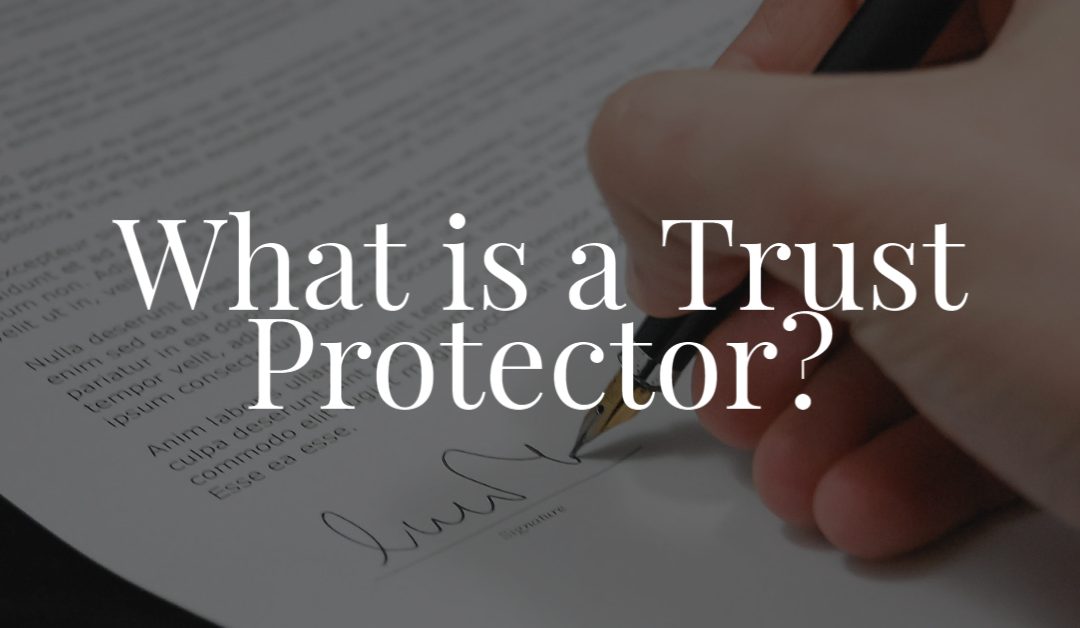A trust protector plays a relatively new role in the life of a trust. They give long-term trust protection by acting with power over trustees and beneficiaries alike. They also serve as an appointed authority over a trust for a time. Trust protectors ensure that trustees:
- Maintain the integrity of the trust
- Make solid distribution and investment decisions
- Adapt the trust to changes in law and circumstance
Whenever changes occur, the trust protector has the power to modify the trust to carry out the trust maker’s intent. Significantly, they can also act without going to court. This ability to act is a critical benefit that saves time and money and honors family privacy. Let’s look at what a trust protector is in-depth.
What Is A Trust Protector?
According to North Carolina law, a trust protector has the power to take action as the acting head of the trust. Let’s look at some of the legal abilities that this “Power Holder” possesses.
Remove or Replace a Trustee
In this role, a trust protector may replace a difficult trustee or one no longer able to serve. For example, let’s say your trust named your Uncle Harry as a trustee, but he has developed Alzheimer’s and is making odd decisions affecting the viability of the trust. The trust protector has the power to create a new trustee appointment so that your original intentions for the trust purpose may work out.
Amend the Trust
They may amend the trust to reflect changes in the law. If tax law changes and state Medicaid reimbursement programs start to charge a fee to irrevocable trusts established by Medicaid recipients, the trust protector may look at ways to protect the trust from the new tax. Protecting the trust could include recanting.
Resolve Conflicts
They may resolve conflicts between beneficiaries and trustee(s) or between multiple trustees. If there are multiple trustees and beneficiaries, difficult investment decisions may bring unrest and disagreements. In these cases, the trust protector acts as a final say. The trust protector has the power that the trustees do not.
Modify Distributions
They may modify distributions from the trust because of changes in beneficiaries’ lives such as premature death, divorce, drug addiction, disability, or lawsuit. For example, let’s say a beneficiary who receives a lump sum at age 30 develops a severe gambling problem at age 28. Because of past losses such as a home and an expensive car, the trust protector may decide that this particular beneficiary may only receive a certain amount of trust assets each month. Modifying how this beneficiary receives trust distributions may protect them from their own problem and thereby uphold the original intentions of the trust.
Add New Beneficiaries
A trust protector may add new beneficiaries if descendants are born. If each beneficiary receives $1000 per month and then two babies are born and receive distributions to a savings account, the trust protector may set up the trust to equally distribute the trust to the additional two beneficiaries.
Veto Investment Decisions
Trust protectors may veto investment decisions that might be unwise. They have the power to veto decisions deemed unwise, even if the other trustees agree that the decisions are sound. The trust protector has the last say.
Writing the Trust Protector In
When drafting a trust that includes a trust protector, it is crucial to write precise details about the powers available to that person. It’s essential to authorize that person, and any future trust protectors, to fulfill their duty to carry out the trust maker’s intent – not their own.
Trust protectors provide flexibility to change a trust as time passes. They also add an extra layer of protection for the original trust maker’s intent. Trust assets and beneficiaries benefit from their oversight. Your attorney can easily add provisions into a new trust. Older trusts can be re-drafted to add a trust protector.
We Can Help
If you have a trust you’ve created or are the beneficiary of a trust that feels outdated, talk with our estate planning attorneys at Hopler, Wilms, and Hanna. We specialize in estate planning and working with any legal documents related to trusts.

